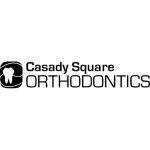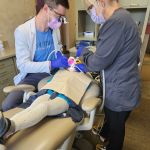How to Find an NHS Dentist in My Area
As someone who’s recently moved to a new area, one of my first tasks was finding a trustworthy NHS dentist. It seemed straightforward, but with so many options and requirements, it wasn’t as easy as I thought. Whether you’re new to the area or just need to switch dentists, I’ll walk you through the process of finding an NHS dentist nearby, and share some insights based on my own experiences and research.
1. Start with the NHS Website
The first and most reliable place to start is the official NHS website. NHS services in the UK are well-organized, and their website provides a tool to search for NHS dentists by location. I was able to quickly find a list of local dentists within a few miles of my home. The site allows you to enter your postcode, and it will show you a list of NHS dentists in the area who are currently accepting new patients.
However, not all NHS dentists are the same, and the availability of spaces for new patients can vary, so it’s important to be flexible. Some areas may have a long waiting list, while others might have openings immediately. But the NHS website also provides contact details for each practice, so you can reach out directly to inquire about availability. I found that calling the practice was helpful, as they can give you the most up-to-date information on their status.
2. Contact Local NHS Trusts
If you’re having trouble finding an available dentist online, contacting your local NHS Trust is a great next step. NHS Trusts manage healthcare services in specific regions, and they can help you find a dentist or guide you on how to register with a local practice. I found this particularly useful when my online search didn’t turn up the results I was hoping for. NHS Trusts can offer advice on what other options are available, and they may be able to recommend dentists in your area that are not listed on the website.
They may also have information about any outreach programs or temporary services available, particularly if you’re in urgent need of dental care. In some cases, if you can’t find a practice taking new patients, the Trust may offer suggestions for alternative routes to access dental services.
3. Check Availability and Opening Times
Once I found a list of possible NHS dentists in my area, I began checking their availability. Many dental practices have their own websites where you can check their opening times and whether they are accepting new NHS patients. Some dentists work exclusively with private patients, while others offer both private and NHS services. This information is often found in the "services" section of their website.
If you can’t find enough details online, I recommend calling the practice. This is what I did when a few websites didn’t have up-to-date information. Be sure to ask about the specific services they offer for NHS patients, as some dental treatments may not be covered under NHS plans, depending on the practice and its location.
4. Inquire About NHS Charges
It’s important to be aware of the NHS dental charges when registering with a dentist. NHS services are often more affordable than private treatments, but there are still charges for certain services. The charges for dental treatments are divided into bands, with Band 1 covering basic consultation and diagnosis, and Band 3 including more complex treatments like crowns, dentures, and bridges.
When I registered with my local NHS dentist, I was given a clear explanation of the cost structure. They even provided a price guide on their website, which made it easier for me to budget for my dental visits. Some NHS dentists may also offer payment plans, which is something worth asking about, especially if you require more extensive treatment.
5. Look for Recommendations and Reviews
In addition to using official websites, I also found it helpful to ask friends and family for recommendations. A personal recommendation can go a long way when choosing a dentist. If you have any contacts in the area, reaching out to them can provide insight into which practices are known for good care and customer service.
Online review platforms like Google Reviews and Trustpilot are also useful for gauging the quality of a dental practice. Reviews from other patients can give you a better sense of the dentist’s approach, the quality of care provided, and the overall experience. While reviews should always be taken with a grain of salt, they can highlight important aspects such as wait times, office environment, and friendliness of the staff.
6. Be Persistent and Patient
Finding the right NHS dentist can sometimes take time. When I first moved to my area, I wasn’t able to find an available dentist right away. But after calling around and checking back with different practices, I finally found one that had availability. It was a bit of a wait, but it was worth it to have a trusted dentist who was within my network of NHS providers.
In some cases, the demand for NHS dentists can be high, especially in larger cities or rural areas with limited options. If you find that none of the practices are accepting new patients, don’t get discouraged. Keep checking back, as NHS dentists periodically open up new slots or change their availability.
7. Register as Soon as Possible
Once you’ve found an NHS dentist in your area who is accepting new patients, the next step is to register. Most practices require you to fill out a registration form, which may include personal information, health history, and insurance details. It’s a good idea to register as soon as possible, as it can sometimes take a little time to process the registration and confirm your first appointment.
Some NHS dentists may also require a preliminary consultation, which is often free or low-cost, to assess your dental needs and discuss treatment options. This appointment is an excellent opportunity to ask questions and get comfortable with the dentist and their team.
Finding the right NHS dentist in your area doesn’t have to be a stressful experience. By using the resources available to you—like the NHS website, local NHS Trusts, and personal recommendations—you can locate a practice that fits your needs and start receiving the dental care you deserve. Just be patient and persistent, and you’ll be well on your way to a healthy smile.







 Inverness Dental Care | Dr. Payal Trivedi5.0 (252 review)
Inverness Dental Care | Dr. Payal Trivedi5.0 (252 review) Axiom Dentistry4.0 (314 review)
Axiom Dentistry4.0 (314 review) Casady Square Orthodontics5.0 (851 review)
Casady Square Orthodontics5.0 (851 review) Mountainside Dental Group - Rancho Santa Margarita4.0 (117 review)
Mountainside Dental Group - Rancho Santa Margarita4.0 (117 review) Spring Lake Dental Arts4.0 (64 review)
Spring Lake Dental Arts4.0 (64 review) Southill Dental Group5.0 (364 review)
Southill Dental Group5.0 (364 review) The Importance of Oral Health Education During Pregnancy for a Healthy Pregnancy
The Importance of Oral Health Education During Pregnancy for a Healthy Pregnancy Best Tips for Brushing Your Teeth Properly for Healthy Gums: Essential Techniques for Oral Health
Best Tips for Brushing Your Teeth Properly for Healthy Gums: Essential Techniques for Oral Health Why Skipping Dental Checkups Can Lead to Bigger Oral Health Problems
Why Skipping Dental Checkups Can Lead to Bigger Oral Health Problems Advantages of Porcelain Dental Restorations
Advantages of Porcelain Dental Restorations How Can Diabetes Cause Tooth and Gum Problems? Preventing and Managing Oral Health Issues
How Can Diabetes Cause Tooth and Gum Problems? Preventing and Managing Oral Health Issues Healthy Habits for Promoting Good Oral Health and Hygiene: Tips for a Healthy Smile
Healthy Habits for Promoting Good Oral Health and Hygiene: Tips for a Healthy Smile